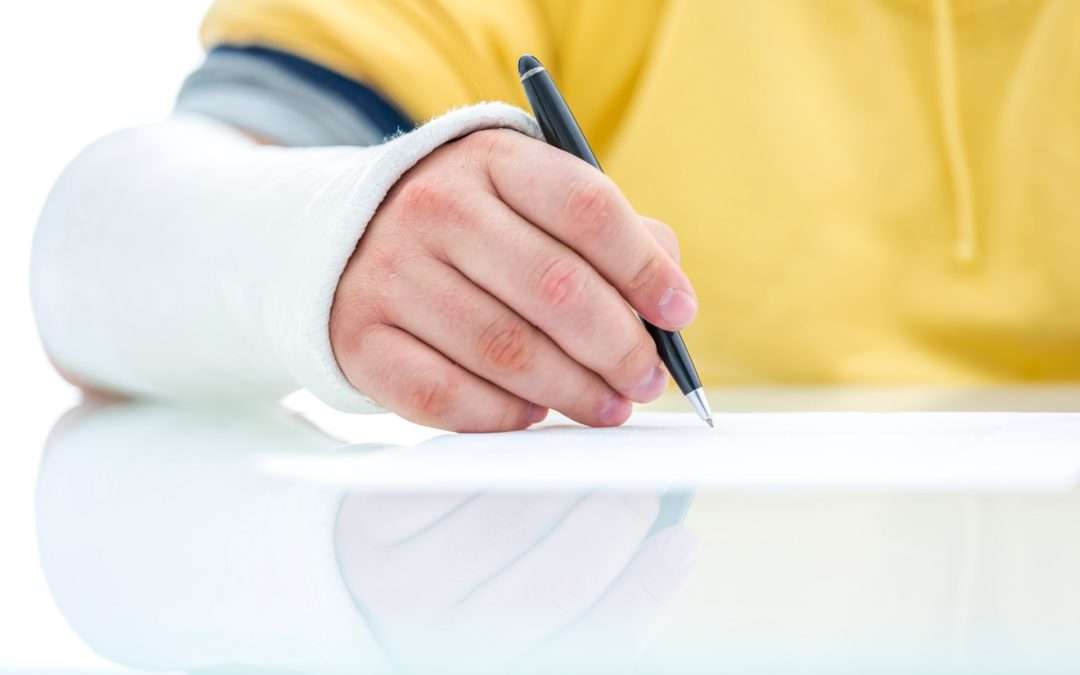Importance of Evidence in Proving a Personal Injury
March 4th, 2019
The days following a personal injury accident are very important as this is the ideal time to begin collecting and preserving the evidence needed to make a successful personal injury claim.
The Austin personal injury lawyer, Laura Ramos James, understands it is close to impossible to concentrate on obtaining all necessary evidence on your own when you are having to deal with medical treatment, home responsibilities, work, and more. That is why our compassionate Austin lawyer is here to help you during these difficult times.
Our expert personal injury attorney can help you to gather all the evidence you need to develop a strong claim and obtain the recovery you need to begin healing. In this blog, we will discuss vital pieces of evidence and why they are important to building your claim.
Important Pieces of Evidence You Need for Your Personal Injury Claim
1. Accident Report
An accident report provides an objective perspective of the accident and is normally made by a law enforcement officer – in the case of a car accident- or a person with authority should your injury take place at work. The report will contain information about who was involved, where the incident occurred, cause of the accident, injuries and other details.
That is why it is critical to report your accident to your employer as soon as possible or to have the police involved should you be involved in any type of auto accident.
2. Physical Evidence
Physical evidence can help prove the severity of your injury or how it happened. For example, damage to your vehicle can demonstrate the impact of the crash; bloodied clothing can show how traumatic the injury was.
Some physical evidence can be lost if not gathered immediately after an accident. You should collect any physical evidence following the incident, and if you are not able to do so yourself, you should ask someone you trust to do it for you.
3. Photographs, Video, & Audio
The next best option after physical evidence is photos, video, or audio that proves that the accident took place. Pictures are especially useful and will provide visual cues of what you suffered.
If possible, try to take pictures of:
- Any injuries.
- Your progress throughout treatment.
- Property damages.
- The scene of the accident.
Take the photos or video as soon as possible and from as many angles as possible as well. This way you can be sure you didn’t miss any detail that could help build your case.
4. Statements and Notes
If you are capable of doing so following your personal injury accident, ask any witnesses for their contact information so you, or preferably your lawyer, can gather statements of what happened.
Additionally, your lawyer may ask you to keep a journal so you can write notes about your injuries and how they are affecting your life since the accident. This will help demonstrate how this accident has thrown your daily life askew.
5. Medical Records
Medical records will provide details about your illness or personal injury; medical bills will demonstrate the cost of your treatment. These type of records may also include the extent of your pain and any possible future treatment. It is recommended to request a medical record from every health provider you go to following your personal injury, including:
- Emergency responders
- Hospital
- Primary care providers
- Physical therapists
- Psychologists
- Specialists
- Emergency room
- Surgical centers
- Diagnostic centers
Keep all medical bills, hospital statements, prescriptions, receipts, discharge information and treatment documentation you may receive.
6. Insurance Communication
Any communication with insurance companies must be recorded either in text or audio. This can help you avoid having your words being purposely misconstrued by the insurer. Save all emails as well.
7. Lost Wages
If your injury prevents you from working, you may lose part of your income and wages. Since you may be entitled to recovery for these damages, you need to collect evidence which shows how much you have lost since your personal injury.
Make sure to get a doctor’s note if he determines you should not go to work while you recuperate. Also, make a copy and turn it in to your employer and ask for a document stating the amount of compensation you will lose for missing those days. If you need to use vacation time or some other form of leave, ask your employer to include this in the letter.
Trust in the Expert Austin Personal Injury Lawyer at Ramos James Law, PLLC.
With more than ten years of experience, Austin attorney, Laura Ramos James, understands how difficult is to keep track of everything you will need to have your personal injury claim approved.
At Ramos James Law, PLLC., we are ready to help you get the compensation you are owed so you can concentrate on getting the treatment you need.



